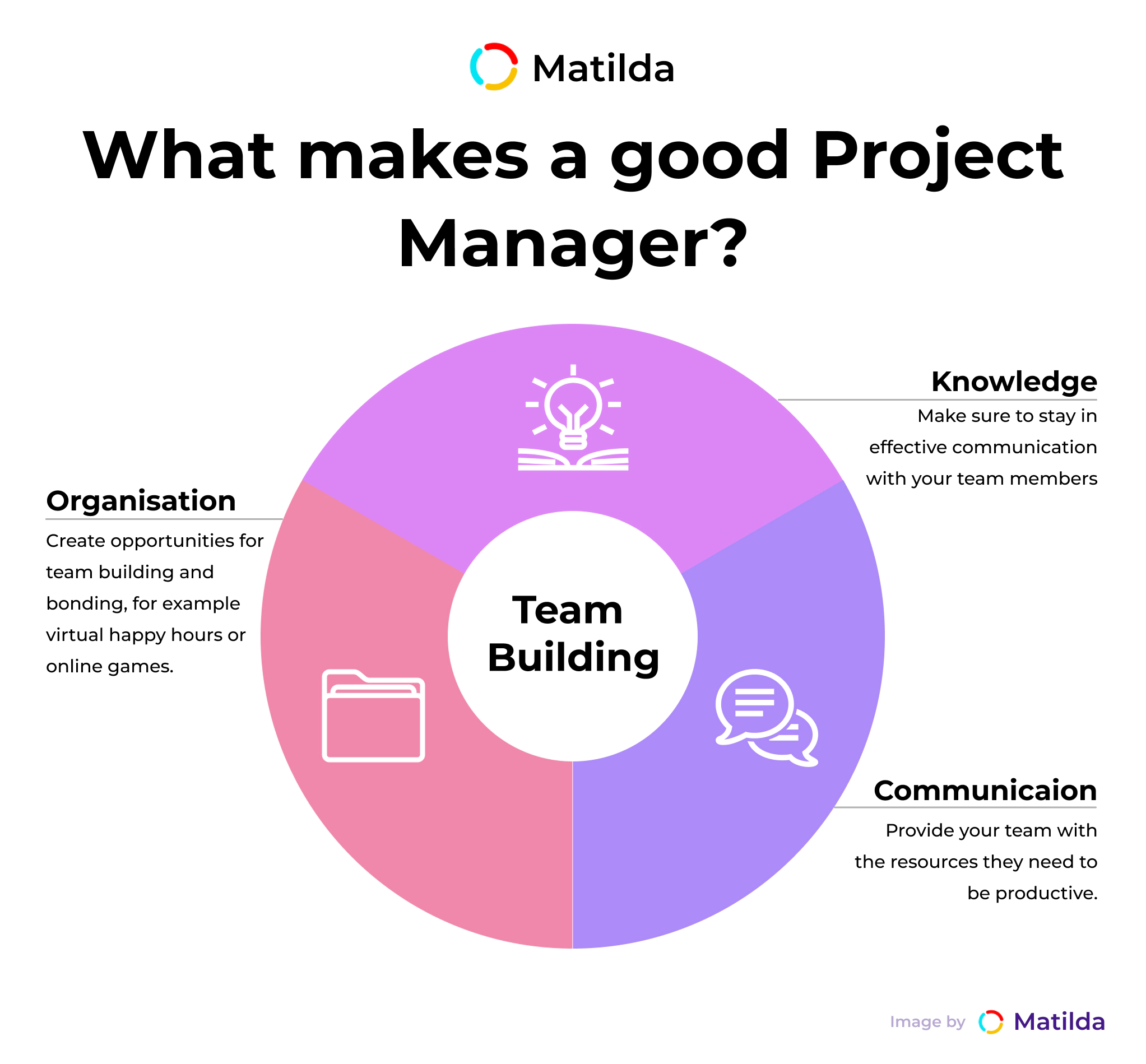Have you ever wondered what project managers do all day? Are they just managing budgets and schedules, or is there more to it than that? Wonder no more! In this blog post, we’ll take a look at the various roles and responsibilities of project managers. So put on your thinking hats, because it’s about to get nerdy up in here! 🙂
Chapters
Chapter 1
About Project Manager
What is a Project Manager?
A project manager is a professional who is responsible for planning, executing, and monitoring projects. They are often agile-certified practitioner who has a deep understanding of the agile methodology.
Project manager salaries can vary depending on the size and scope of the project, but they typically range from $50,000 to $100,000 per year. A project manager’s job description should include a bachelor’s degree in business or a related field, as well as experience in project management.
Job responsibilities of a project manager typically include developing project plans, coordinating with team members, and tracking progress. Project managers also often report to executive leadership on the status of the project. Ultimately, the goal of a project management professional is to ensure that the project is completed on time and within budget.
What makes a good Project Manager?

A project manager’s role is responsible for overseeing the project from start to finish. They are the ones who make sure that the project is completed on time, within budget, and according to the specifications. But what makes a good project manager?
There are a few project manager qualifications that are essential for success in this role. First, good project managers must be knowledgeable about project management methodologies. They should be able to choose the right methodology for the project moving forward and adapt it as needed.
Second, good project managers must have strong people skills and be able to communicate clearly and effectively with team members, clients, and upper management.
Lastly, good project managers must be organized, and detail-oriented and are able to keep track of all the moving parts of the project and make sure that everything is on track. If you have these project manager qualifications, then you have what it takes to be successful.
Chapter 2
Project Manager Role
What Does a Project Manager Do?
Project managers play an important role in project scope. They determine what the project will entail and how long it will take to complete.
Project managers also develop a detailed project plan that outlines each step of the project life cycle. In addition, the responsibilities of a project manager are ensuring that the project stays on track and that all deadlines are met. They do this by keeping an eye on the budget and ensuring that all team members are working efficiently.
So, if you’re ever wondering what a project management professional does, just remember: they’re responsible for everything!
Chapter 3
Project Manager Responsibilities
Project Manager Responsibilities

1. Plan and Develop the Project Idea:
This is the first and most important responsibility of the project managers. If you can’t come up with a good project idea, then the project is doomed from the start. The project managers must be able to develop a project’s scope that is feasible, achievable, and has a clear purpose which helps to easily assign tasks.
2. Get the team together and motivate them:
Once the project idea is developed, it’s time to get the entire team together. The project managers must be able to inspire and motivate the team to work towards the common goal. This requires excellent communication and interpersonal skills.
Note
3. Coordinate and organize the plan:
The project managers must be able to Coordinate and organize the plan so that everyone knows what they need to do and when they need to do it. This is essential for keeping the project on track with strong organizational skills.
Note
4. Lead your team with a common goal:
The project managers must be able to lead the team toward a common goal. This requires excellent leadership skills. The project managers must be able to keep the team focused and on track.
5. Managing the budget:
One of the most important responsibilities of the project manager is managing the budget. The project manager must be able to stay within the budget while still delivering the project goals. This requires excellent financial management skills.
6. Deliver the goals committed:
The project manager’s ultimate responsibility is to deliver the goals committed to the project schedule. This requires excellent project management skills and keen attention to detail. The project managers must be able to keep all aspects of the project on track in order to ensure the successful delivery of the goals committed.
7. Establishing a shared vision:
Without a shared vision, it’s difficult to build buy-in from team members and other stakeholders. The project manager is responsible for communicating the project’s goals and objectives and ensuring that everyone is on the same page.
8. Managing the deployment deliverables:
The project manager is responsible for ensuring that all deliverables are delivered on time, within budget, and to the quality standards agreed upon for closing projects. This includes risk management and managing issues, as well as contingency plans.
9. Controlling time management:
Time management is critical to the success of any project. The project managers work for setting timelines and milestones, as well as track progress and addressing any issues that arise. The project manager’s time management skills can eliminate common time wasters during a project.
10. Allocation of budget and resources:
One of the most important responsibilities of the project management professional is to ensure that the project stays within its allocated budget. This includes resource allocation develop and procurement, as well as cost management and monitoring.
11. Document preparation:
Another key responsibility of the project manager is document preparation. This includes creating project plans, risk assessments, change management plans, and other essential documents.
12. Communication with the customer:
Good communication is essential to maintaining a happy customer. The project management roles are important for keeping the customer updated on project progress, changes, and risks. They must also ensure that client expectations are realistic and manage any dissatisfaction that may arise.
13. Ensuring Customer and Stakeholder Satisfaction:
As a project manager, one of your key responsibilities is to ensure that both customers and key stakeholders are happy with the final product. To do this, you’ll need to establish clear communication channels, and stakeholder management and set realistic expectations. You should also be prepared to manage third-party vendors, as they can often be the source of customer dissatisfaction in project management.
14. Monitor Project Progress and Set Deadlines:
It’s important to stay on top of the project’s progress and ensure that deadlines are being met. Doing so will help you identify potential roadblocks and take corrective action before the project goes off track. You should establish milestones and track both successes and failures of the project for monitoring progress effectively.
15. Risk Analysis in project management:
Risk analysis is an essential part of project management. By identifying and assessing risks, you can develop strategies to mitigate them. The goal is to identify potential problems before they occur so that you can avoid costly delays or setbacks in the project.
16. Evaluate Project Performance and track roadblocks:
Once the project is complete, it’s important to take a step back and evaluate its overall performance. This will help you identify areas where improvements can be made for future projects. Tracking roadblocks is also essential, as this information can be used to avoid similar problems in the future and can be used as a future reference.
17. Conducting regular meetings:
Being a project manager isn’t all about micro-managing and conducting regular meetings (though those things are important, too). Project risk goes up exponentially when portfolio managers fail to meet regularly with project leads.
Why? Because things happen and change, project leads need to know what’s going on so they can make decisions accordingly. This is why conducting regular meetings is so important – it helps keep everyone on the same page and reduces the likelihood of surprises down the line.
18. Coming up with a Plan B for better Project Management:
As a project manager, one of your most important jobs is to come up with a Plan B in case things go wrong. This means being prepared for anything that could possibly happen and having a backup plan ready to go. This means being prepared for risks that could impact the project, such as budget cuts or resource availability.
Pro Tip
19. Activity and resource planning:
Another important function of program managers is to ensure that resources are available when they’re needed. This includes both human resources (e.g. project team members) and physical resources (e.g. office space, equipment, etc.). Activity and resource management planning ensures that multiple projects stay on track and that deadlines can be met.
20. Lead quality assurance of project management:
Finally, program managers are responsible for ensuring that the project meets all quality standards. This includes conducting quality assurance testing and working with project leads to resolve any issues that arise. By doing this, program managers can help ensure that the project is delivered on time and to the required specifications.
Is Being a Project Manager Stressful?
You might be wondering, is being a project manager stressful? The answer is, it can be. It all depends on the project management knowledge you have, and how you handle stress. If you’re well-versed in project management practices and know how to keep a cool head under pressure, then a project management career can be very rewarding.
However, if you’re new to the field or tend to crumble under pressure, then a project management career might not be for you. So, Is being a project manager stressful? Ultimately, it all comes down to the individual.
Chapter 4
Project Manager Skills
Skills and attributes needed to be project managers
Being a project manager is not for the faint of heart. Not only do you need to have a firm grasp of technical skills and soft skills, but you also need to be able to keep your project team motivated and on track.

If you’re thinking of becoming a project manager, here are some essential skills and attributes you’ll need:
- Excellent communication skills:
As a project manager, you’ll need to be able to clearly communicate your vision for the project to your team. You’ll also need to be able to effectively resolve conflicts and keep everyone on the same page.
- Orientation to action:
Project managers need to be organized and have a clear project plan for how the project will progress. You’ll need to be able to schedule tasks, set deadlines, and make sure that everyone is meeting them.
- Enthusiasm:
Successful project managers are passionate about their work and inspire others to do their best. You’ll need to be able to motivate your team and keep them engaged throughout the project.
- Problem-solving skills:
No matter how well you plan, there will always be unexpected challenges along the way. That’s why it’s important to have strong problem-solving skills as a project manager. You’ll need to be able to quickly identify problems and find creative solutions that work for everyone involved.
- A cool head and analytical mindset:
As a project manager, you’ll often be under a lot of pressure. It’s important that you’re able to stay calm under pressure and think clearly in order to make the best decisions for the project. If you have these essential skills and attributes, then you might just have what it takes to be a successful project manager!

